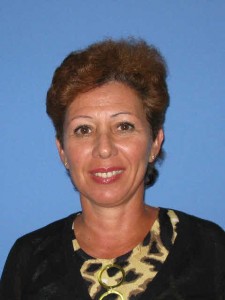For the fifth consecutive year we surveyed 1Ls during First Week library tours about their use of digital communication tools. Our apologies for this late delivery — though the pizza may be cold it’s still worth having.
In addition to telling us their favorite pizza topping (answer below), more than 470 members of the class of 2014/15 responded to questions about:
• their preferences in electronic communication;
• their social networking activity;
• their usage of blogs, RSS feeds, podcasts, e-books, and Twitter; and
• the types of electronic devices (smart phones, e-book readers, etc.) they owned.
You can see all the survey questions (and the responses) here. Below are some highlights, revealing a continuation of some trends we have been watching develop.
• E-mail use continues to plummet vis-à-vis text messaging as the preferred means of written electronic communication. The percentage of those favoring e-mail fell this year to 37%, down from 45% in 2010, 55% in 2009, 62% in 2008, and 67% in 2007. At the same time, entering students’ preference for text messaging rose to its highest level yet, 46%, overtaking e-mail as the most popular form of written electronic communication. This result is consistent with the findings of a Pew Internet & American Life Project 2011 study detailing that 73% of American adults who own cell phones (83% of Americans) send and receive text messages. The study further found that young adults between the ages of 18 and 24 averaged nearly 110 texts per day, translating to more than 3,200 per month.
• Facebook remains the dominant social networking site for these students, favored by nearly 86%. Significantly, this group is also using Facebook more often than predecessor classes; frequency of use increased for the fourth straight year, with 49% reporting logging on to the site more than once per day, compared to 2010 (46%), 2009 (39%), and 2008 (28%).
• For the first time, our survey included questions about Twitter. We’ve learned that nearly 38% of the entering class have a Twitter account, although only 5% tweet more than once per day. Another 5% tweet a few times per week and 14% tweet occasionally. But, that tells only half the Twitter story: 26% of the class are regularly following more than five Twitter feeds with another 5% following between one and five feeds. We would expect both types of Twitter usage to increase over time.
• Blogs and RSS feeds are still not an important part of most students’ lives. Just over a third of the 1L class arrived at NYLS as subscribers to or readers of blogs (a slight decrease from last year) and only a very small number (8%) take advantage of RSS or e-mail subscriptions that push the information directly to them.
• Similarly, podcasts have still not gained much traction – usage has more or less stagnated for the past three years with 49% of the class not having downloaded or listened to a podcast and another 7% not even knowing what a podcast is. Last year’s numbers were 47% and 10%, respectively.
• The popularity of Macs compared to PCs continued to increase, albeit at a slower rate, rising to 51% from 50% in 2010, 39% in 2009, and 31% in 2008.
• Internet Explorer continued to lose popularity while Google Chrome made big gains as the browser of choice. Some of Chrome’s gains came at the expense of both Firefox and Safari. While Chrome usage surged from 12% to 22%, Firefox dropped from 36% to 24% and Safari from 30% to 28%.
• When asked which search engine they use most often, respondents again identifiedGoogle by a wide margin (94%), with Yahoo a mere 2% and Bing barely 1%. Interestingly, 44% of those surveyed “sometimes” use a different search engine to perform an identical search after receiving results from an initial search, perhaps recognizing that individual search engines can have limitations and failings. That number is nearly identical to the results of 2010’s survey. An additional 5% “usually” use another search engine to supplement their results (compared to 8% for 2010) and nearly 7% “always” do so (compared to 5% in 2010).
• For just the second time, the survey asked students which among certain specified electronic devices they owned. Among “smart phones,” Blackberry lost ground this year (from 40% to 32%) to the iPhone (up to 37% from 22%) and the Android (at 21%). Ownership of an iPad or other tablet device increased from 5% to 16% and ownership of an e-book reader increased from 4% to 14%.
• Of great interest is that despite a large increase in the number of students owning e-book readers and tablet devices, the actual use of e-books showed an unexpected drop-off – 50% compared to last year’s 56%. A reluctance to move away from traditional books seems to linger.
• Finally, after last year’s brief upset, Pepperoni regained its crown as students’ favorite pizza topping, pulling in 26% of the vote compared to Extra Cheese the nearest contender with 15%. Mushrooms, at 13%, continued to repeat as a third place finisher.


